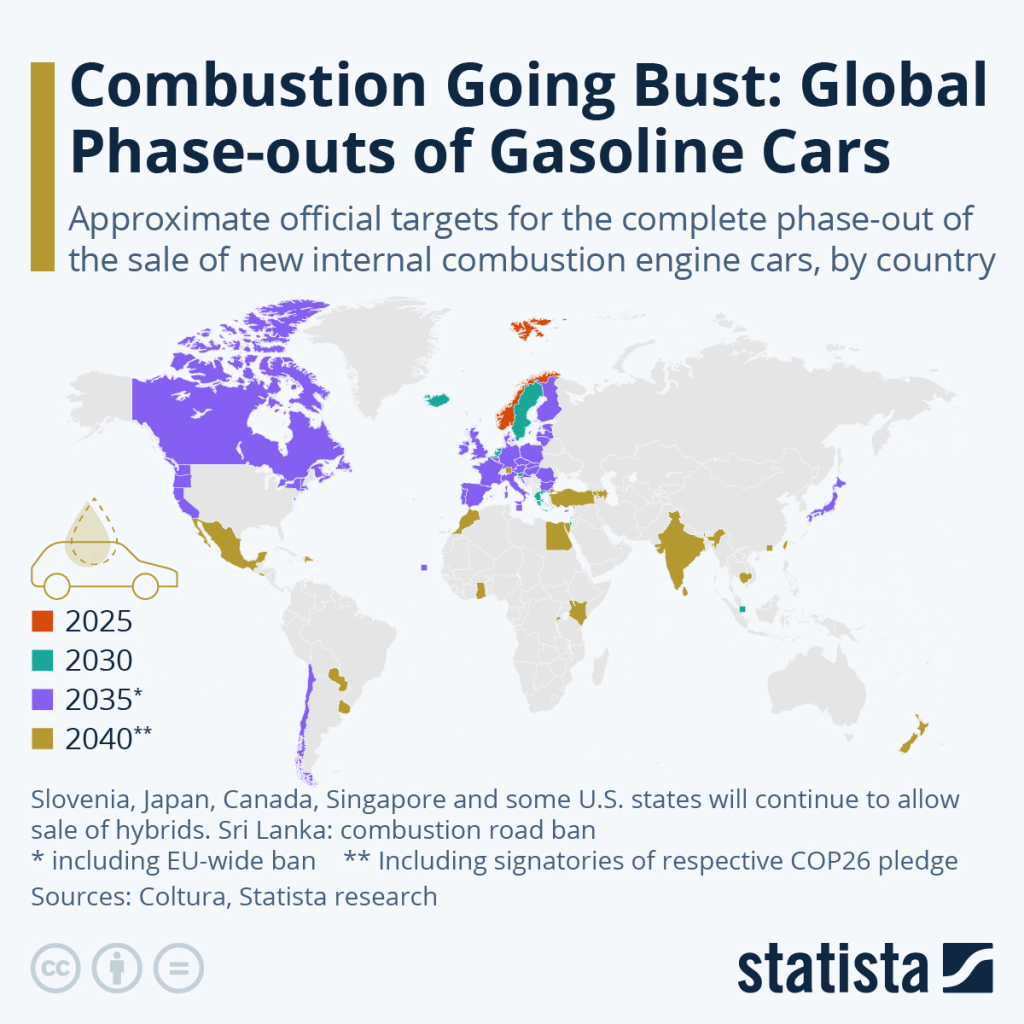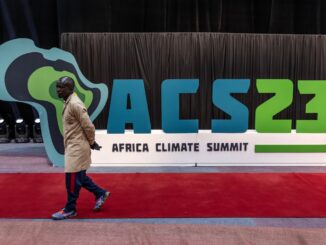
Ethiopia spent nearly $6 billion to import fossil fuels last year — with more than half of that spending going to fuel vehicles. In response, Ethiopia’s Transport and Logistics Ministries have announced that automobiles cannot enter Ethiopia, unless they are electric. (!)
Last February, the European Union approved a law that would ban the sale of combustion engine cars in its member states from 2035 — joining several US states, Canada, Japan, Singapore, India, New Zealand, and a number of other nations with similar bans already on the books (see chart, below). Ethiopia, however, isn’t waiting for 2035.
Ethiopia is trying to ban ICE vehicles now.
According to a news update from the parliament, Alemu Sime, the Ethiopian Minister for Transport and Logistics, announced the completion of the nations Logistics Master Plan Monday. Details were scarce, but he has announced that, “a decision has been made, that automobiles cannot enter Ethiopia unless they are electric ones.”
Planned phase-out of ICE cars, by nation

Minister Sime went on to highlight the implementation of new practices in strategic affairs and addressed the committee on the Ministry’s initiatives related to “Green Transport” initiatives throughout Ethiopia.
Sime further explained that efforts to establish charging stations for electric cars remain a high priority, and offered that the nation’s inability to access favorable foreign exchange resources has contributed to its inability to afford to continue importing gasoline and diesel.
Electrek’s Take
As you can imagine, this story sparked a lively conversation in the Electrek group chat.




Ethiopian here. Main reason for this is the fact that it’s currently struggling with a severe foreign exchange shortage, affecting its ability to import oil and other commodities. Aside from this surprising announcement, lack of foreign currency has also led to a significant push towards enhancing its agricultural productivity and boosting its local production of light manufactured goods.
I imagine the drive towards going 100% electric is largely motivated by this, but not entirely. Ethiopian has been investing massive amounts on its energy infrastructure for the past 20 years (97% of its energy comes from renewables). It’s just about to inaugurate its 6500MW hydroelectric plant, poised to be the largest in Africa.
So this shift towards going fully electric, while partly in response to economic pressures, seems to also be part of a broader strategy that’s been in the works for a couple decades (although a really ugly conflict recently cost them dearly and precipitated this foreign currency crunch).
The reliability of electricity in some parts still leaves a lot to be desired. Improving the consistency of power supply across the country seems like the next crucial step.
1031 Exchange E-Book
ENB Top News
ENB
Energy Dashboard
ENB Podcast
ENB Substack